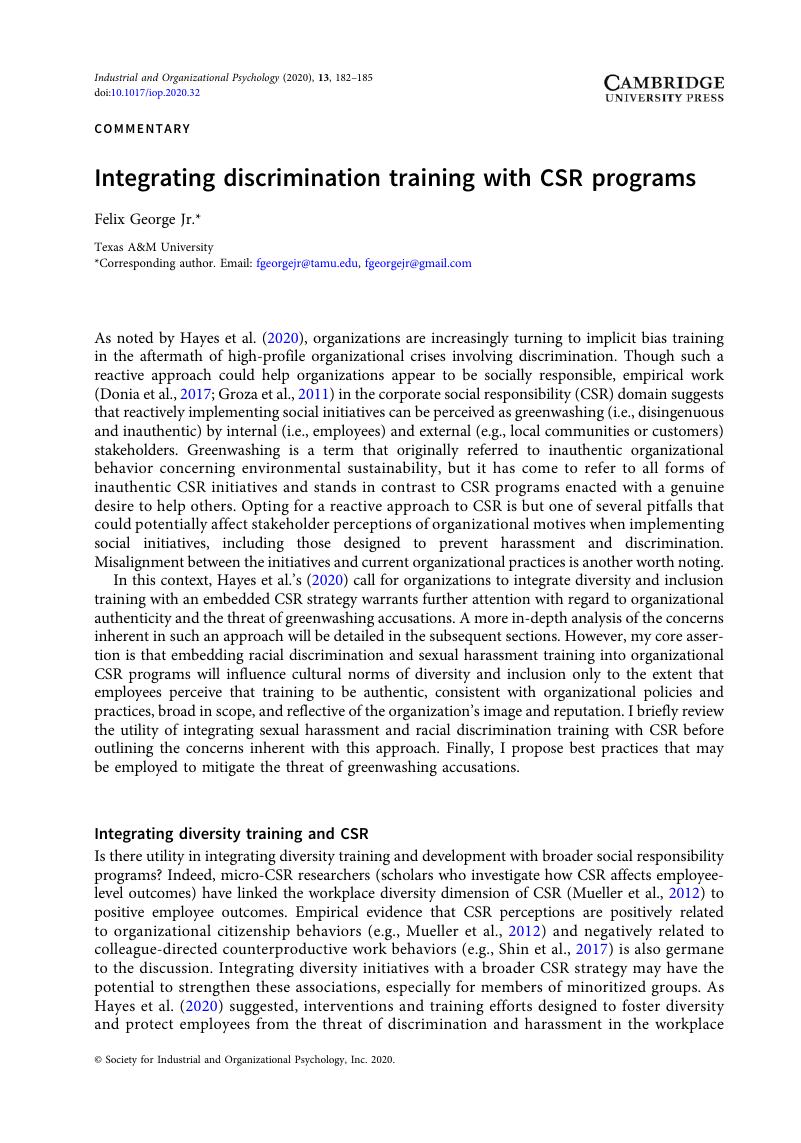Crossref Citations
This article has been cited by the following publications. This list is generated based on data provided by Crossref.
López-Fernández, Andrée Marie
2022.
Inclusive Businesses in Developing Economies.
p.
29.
Sult, Anike
Wobst, Janice
and
Lueg, Rainer
2024.
The role of training in implementing corporate sustainability: A systematic literature review.
Corporate Social Responsibility and Environmental Management,
Vol. 31,
Issue. 1,
p.
1.



